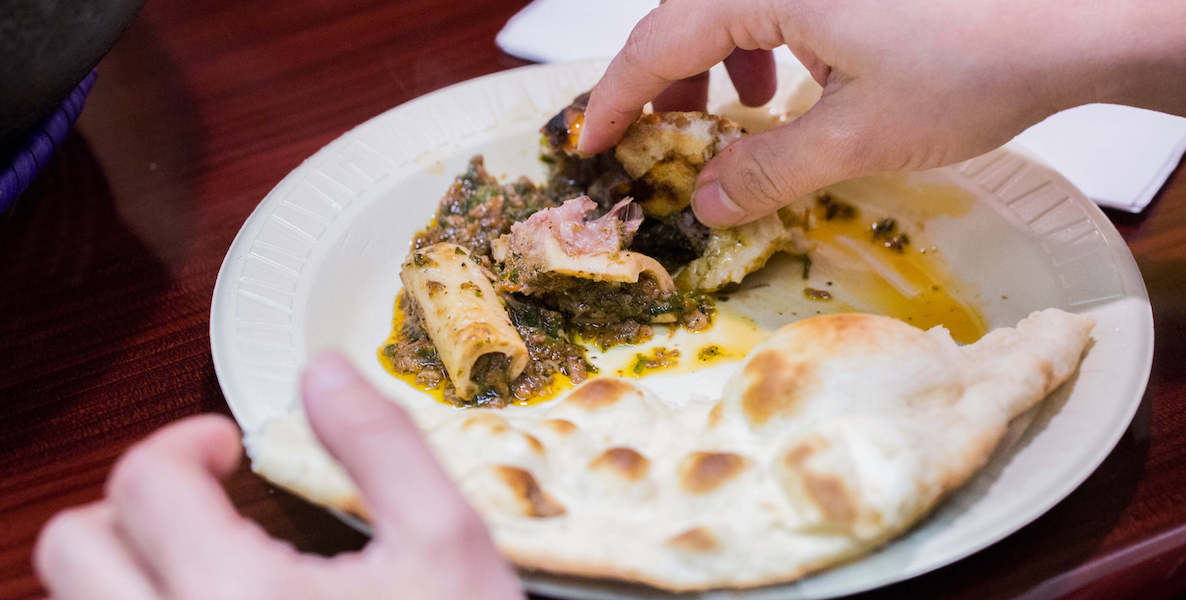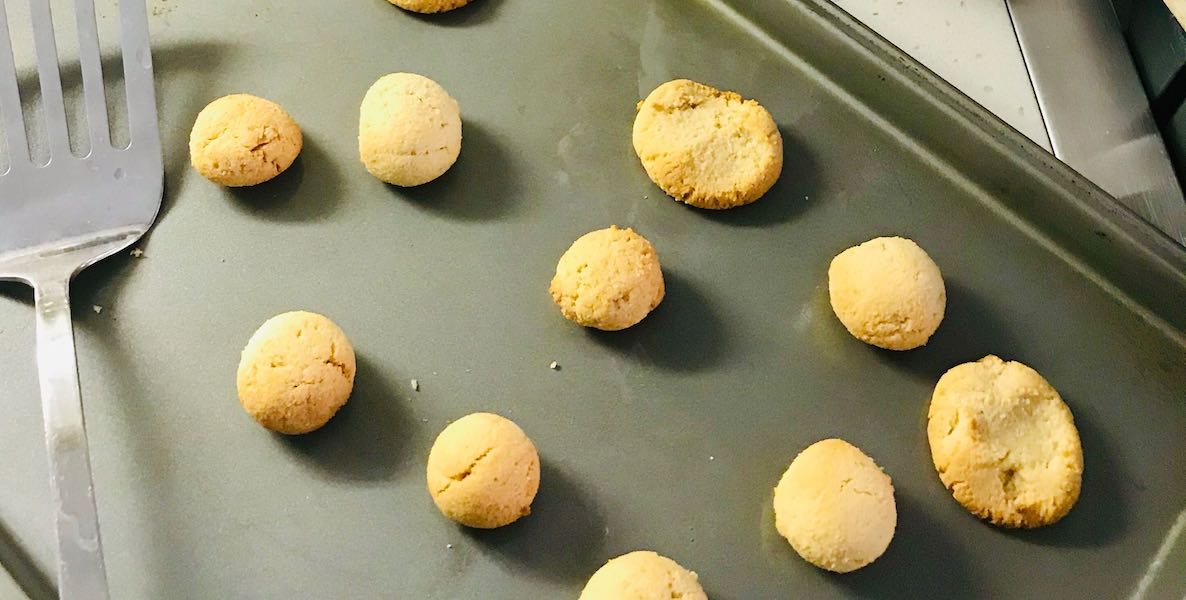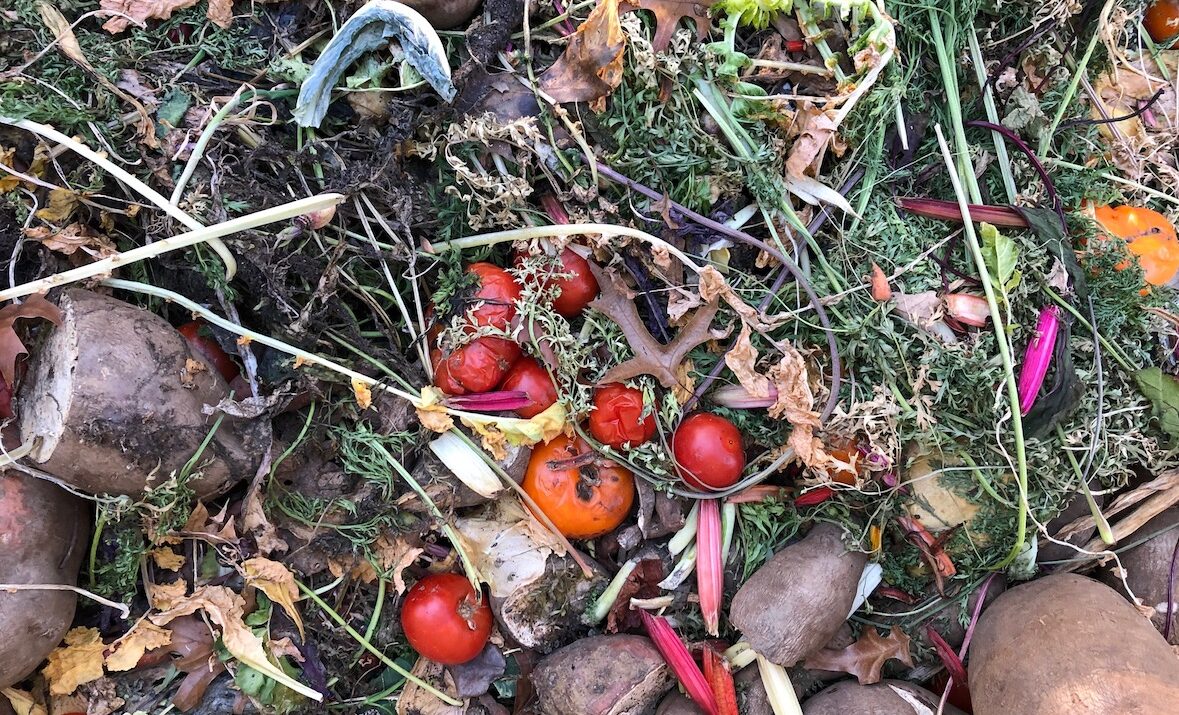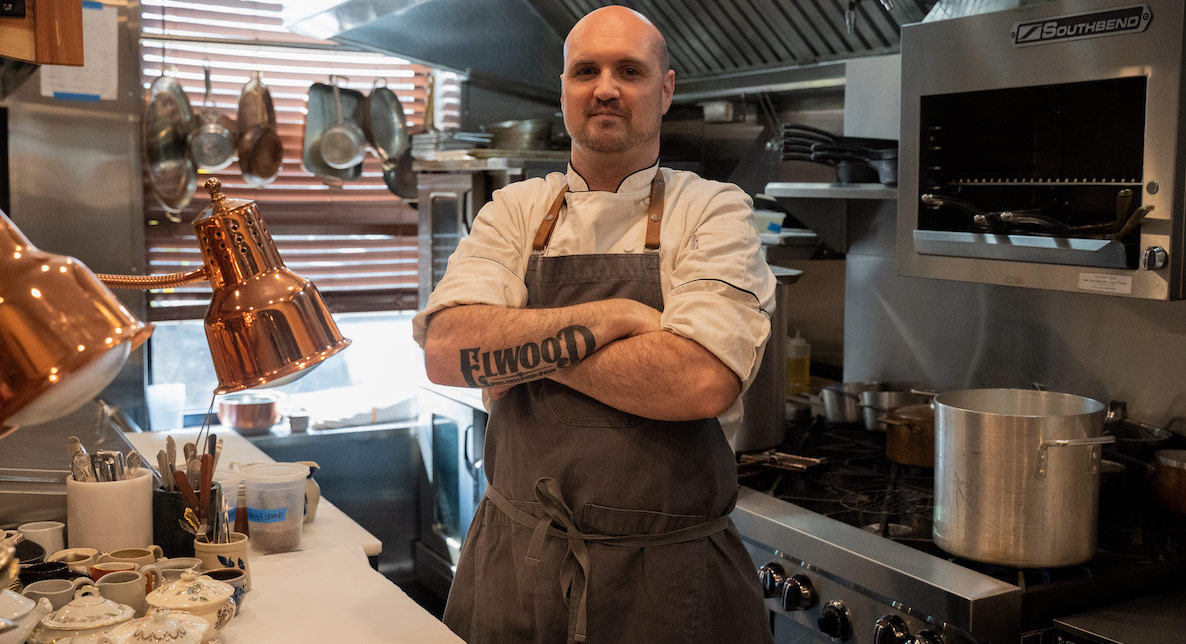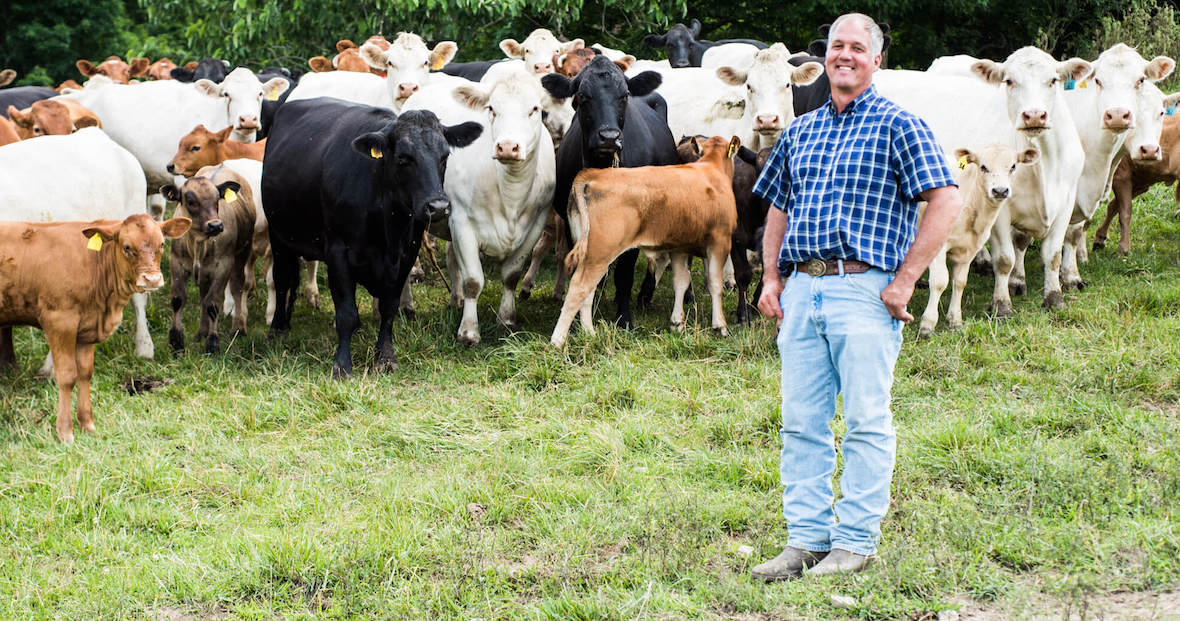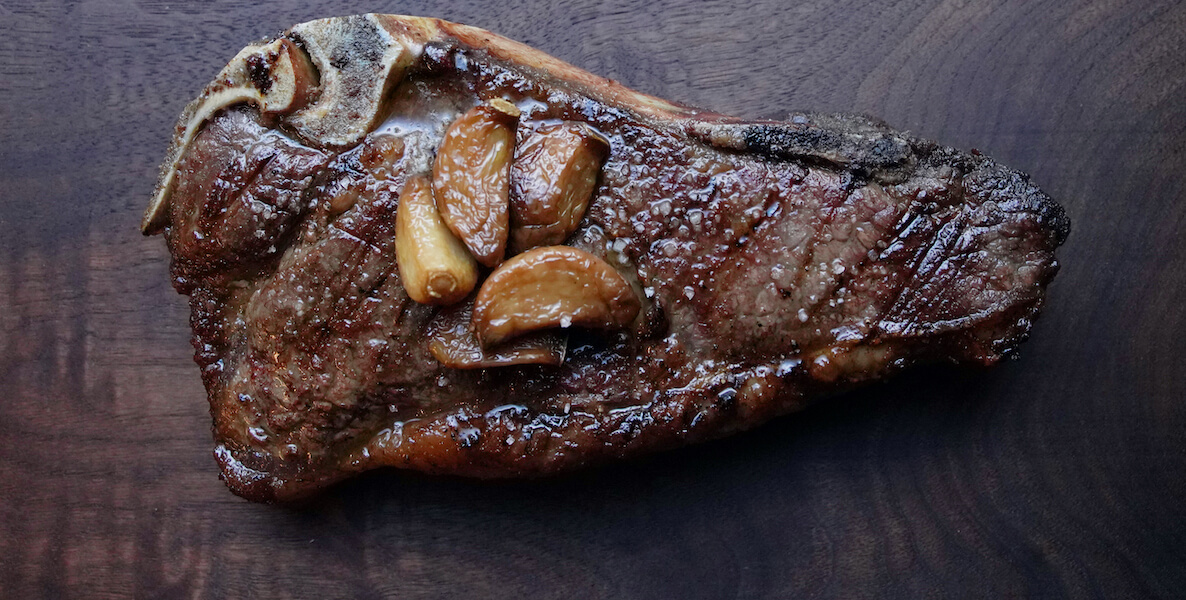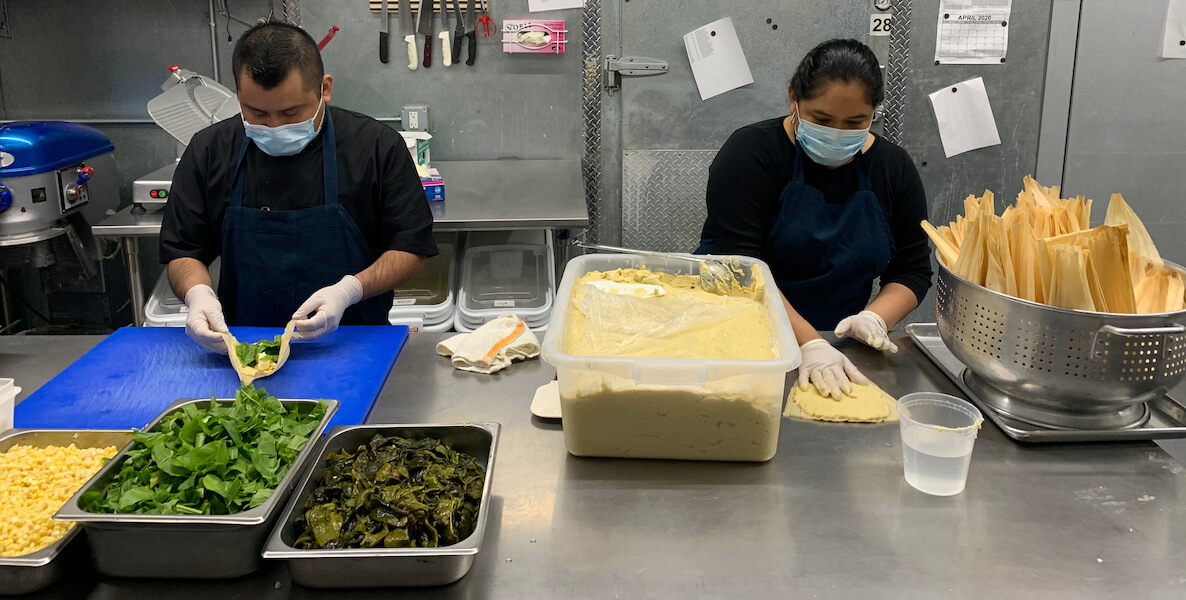As the weather warms and social distancing remains the law-of-the-land, Philadelphians are likely to enjoy summer one of the only ways they can: backyard barbecues.
But things don’t look good for the national meat market. Thanks to disturbing numbers of coronavirus cases among its employees, the country’s major meat processors—including Tyson Foods, WH Group’s Smithfield Foods and JBS USA—temporarily closed about 20 slaughterhouses last month.
That’s meant a major national shortage in meat products—and steadily climbing prices on grill-ready burgers, hot dogs and chicken at your neighborhood grocery store.
![]() But while the corporations that dominate our centralized food system are scrambling to adapt to the Covid-19 crisis, local suppliers are standing strong. Philly’s own Primal Supply Meats has plenty of fresh pork and poultry on hand, with options for home delivery and safe, contactless pick-up.
But while the corporations that dominate our centralized food system are scrambling to adapt to the Covid-19 crisis, local suppliers are standing strong. Philly’s own Primal Supply Meats has plenty of fresh pork and poultry on hand, with options for home delivery and safe, contactless pick-up.
So why is Primal Supply thriving in the wake of coronavirus restrictions, while bigger and older companies are crippled? Owner and head butcher Heather Thomason says that the small and independent nature of Primal Supply—and the dozen or so regional farms and slaughterhouses it works with—is its biggest strength.
Thomason founded Primal Supply in 2016 as a wholesale and subscription operation, before opening two brick-and-mortar locations in South Philly and Brewerytown. She made a name for herself selling locally sourced whole animals to restaurants around the city, revolutionizing Philadelphia’s meat supply chains.
To Thomason, local has always been the name of the game. She created Primal Supply as a means to support regional farmers—from Wild Rose Ranch in PA to Roaming Acres Farm in NJ—whose agriculture practices are far more sustainable and ethical than the mass production that’s come to characterize factory farms.
“The commodity meat industry, the ways in which they raise and process animals are very different from what we do,” Thomason says. “We work with small farmers that are all committed to pasture-based systems. So they’re raising animals on land with space. They’re healthy. They’re not concentrated.”
“There’s so much uncertainty for people right now, about access and sourcing and where their food is coming from,” Thomason says. “People are opening their eyes to the fact that what they’re used to and what they took for granted isn’t working anymore. It’s really shed a light on the merits and sustainability of local food.”
Thomason’s partner farms also refrain from injecting hormones or sub-therapeutic antibiotics in their animals, and make use of regenerative farming practices that build nutrient-rich topsoil that is less susceptible to drought and can draw down carbon from the atmosphere.
Those practices—combined with the fact that transportation between suppliers and processors is minimal—means Primal Supply’s local supply chain is much less taxing on the environment than Tyson’s massive operation. Of course, ethical growing practices are more time- and labor-intensive, so sustainable meat is pricier meat. Primal Supply’s beef bone-in strip steak, for instance, comes to $24.99 per pound.
But those dollars are likely to come back around to you. Buying from Primal Supply means supporting family-owned farms within the region, rather than sending your dollars to the executives at Tyson’s Arkansas headquarters. Studies show that supporting small, local businesses and purveyors is linked to higher income growth, lower levels of poverty and a stronger middle class in surrounding communities.
That’s likely because those employers often pay higher wages and provide better benefits than big-box stores. Plus, shopping locally helps to build a stable local economy that’ll keep wealth circulating in the community—something much-needed now, in the face of an unprecedented economic crisis.
A small but mighty ecosystem …
Primal Supply isn’t alone. Small markets and grocers around the city—like Riverwards Produce, Rowhouse Grocery, Mariposa Food Co-op, Tela’s Market and Kitchen and more—all source their products from local growers. And they’ve all found ways to adapt, whether through home delivery or limited in-store hours, while keeping their fresh products rolling in.
When Covid-19 swept the country, bringing shutdowns and strict safety guidelines with it, Primal Supply’s small but mighty ecosystem allowed the butchery to quickly pivot and survive—while larger meat processors are faltering.
Thomason says her supply of whole animals hasn’t slowed, since the farmers and slaughterhouses she works with have been able to space out their staff and quickly establish sanitation protocols.
“The number of employees they have, and the space that they work in is not crowded, it’s not dense, it’s not a factory that’s focused on higher speed, highest volume of processing for profit,” Thomason says. “We call each other on the phone, we check in, we see how everybody’s doing. Everyone has been able to be resilient in the sense that we can shift and change and adapt to keep people safe, and the large industrial system doesn’t have the ability to do that.”
Thomason’s own staff of 20 has also had to adapt. In March, after Philadelphia’s ![]() restaurants were shuttered due to the citywide shutdown, Primal Supply lost its entire wholesale arm—representing 45 percent of its revenue—overnight. But just when Thomason began to panic, customers old and new showed up to the butcher shop in droves to stock up their freezers.
restaurants were shuttered due to the citywide shutdown, Primal Supply lost its entire wholesale arm—representing 45 percent of its revenue—overnight. But just when Thomason began to panic, customers old and new showed up to the butcher shop in droves to stock up their freezers.
“Meat that we would have sold to restaurants, we were able to make available to home cooks,” Thomason says. “Because we’re butchers. We can change the way that things are cut or portioned or sold.”
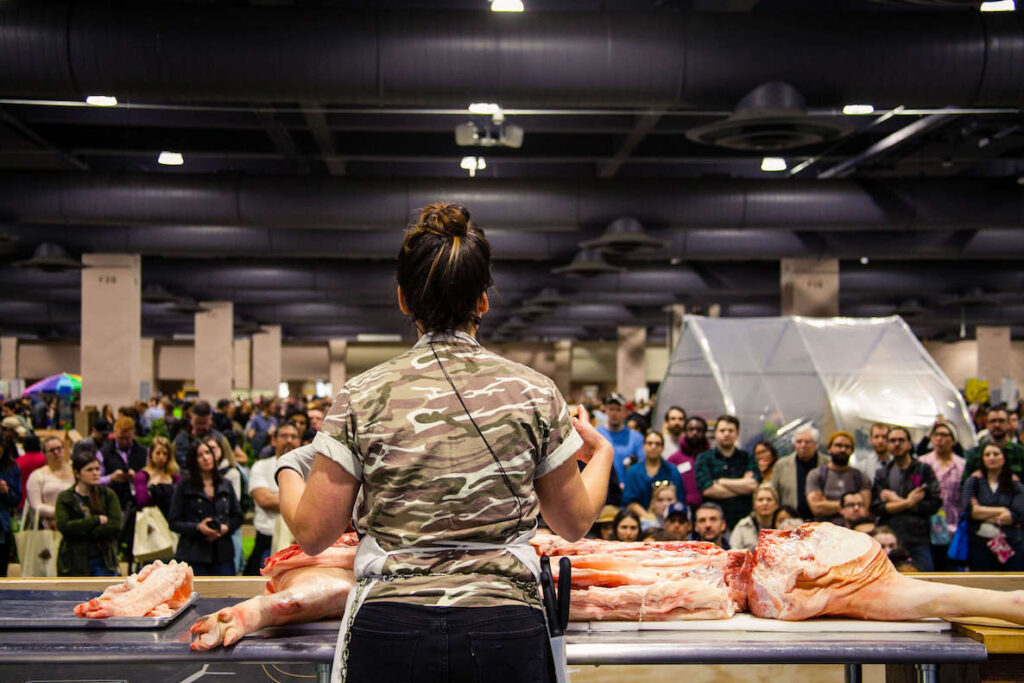
“We’re not going back, we’re going forward.”
Retail sales have shot up, effectively balancing out the loss in revenue from Primal Supply’s restaurant accounts. But rather than institute painstaking safety measures to accommodate those customers in-person—from plexiglass screens to in-store capacity limits—Thomason decided to close the shop to walk-in business and shift her operation entirely online.
Primal Supply’s site now includes a virtual store, allowing customers to place orders for pickup or home delivery. The butchery had been toying with an online sales platform for a while, but ramped up those efforts to turn out the final product in a matter of weeks.
The home delivery option is a brand new addition to Primal Supply’s business model, but it’s been working smoothly, according to Thomason. (Primal Supply’s popular pay-as-you-go subscription meat program—dubbed The Butcher’s Club—is still pick-up only.)
“The commodity meat industry, the ways in which they raise and process animals are very different from what we do,” Thomason says. “We work with small farmers that are all committed to pasture-based systems. So they’re raising animals on land with space. They’re healthy. They’re not concentrated.”
To make the switch successful, Thomason’s staff has had to take on new roles and drastically shake-up their day-to-day routines. People in charge of customer service in-person are now answering emails, and people who worked the counter now pack and sell groceries.
But as stressful as the pivot has been, Thomason is grateful it’s allowed her to retain her employees. Thomason says that the small nature of her staff is exactly what allowed the operation to adjust. And that fits with studies that show that small businesses retain, and even create, far more jobs during economic downturns than large corporations do.
![]() “This is a really hard time for people to work and live through, but they’re so proud of the work that we’re doing right now,” Thomason says of her staff. “We’ve settled into new roles and after a really stressful period, people are good at their jobs again and know what to do at work and that feels great.”
“This is a really hard time for people to work and live through, but they’re so proud of the work that we’re doing right now,” Thomason says of her staff. “We’ve settled into new roles and after a really stressful period, people are good at their jobs again and know what to do at work and that feels great.”
Thomason says that Primal Supply will maintain its new online system, even after customers can safely shop at the walk-in locations. The post-pandemic business model is shaping up to be a hybrid between online and in-person retail.
“We’ve changed. And I think for the better, honestly,” Thomason says. “I’ve been training myself not to use the word ‘return.’ Because we’re not going back, we’re going forward.”
A boost in non-meat items
Part of that change includes a boost in non-meat items up for offer on Primal Supply’s site. The butchery has always sold a small selection of produce and prepared food from its partner farmers and Philly-based purveyors, like Lancaster Farm Fresh and Mycopolitan.
And since those businesses also saw their wholesale accounts vanish in the wake of the citywide shutdown, Thomason decided to use the capacity once reserved for restaurants to instead grow its supply of locally sourced fruits and veggies.
“I started talking to all of [the purveyors] and saying, ‘We can keep selling your stuff and maybe we can sell a little more because folks are having a hard time going to the grocery store now,’” Thomason says. “My relationships are deepening with these local purveyors and it’s a lot of fun to watch the local produce roll in and source beautiful things that are coming into season and see our customers be excited.”
Thomason hopes that all this change is for the better, especially when it comes to awareness about how and where we buy our food. As small, local businesses like Primal Supply stand strong through this crisis, people may finally start to appreciate them.
“There’s so much uncertainty for people right now, about access and sourcing and where their food is coming from,” Thomason says. “People are opening their eyes to the fact that what they’re used to and what they took for granted isn’t working anymore. It’s really shed a light on the merits and sustainability of local food.”
Keith Wadel of Wild Rose Ranch in Dry Run, PA. Photo by James Collier


